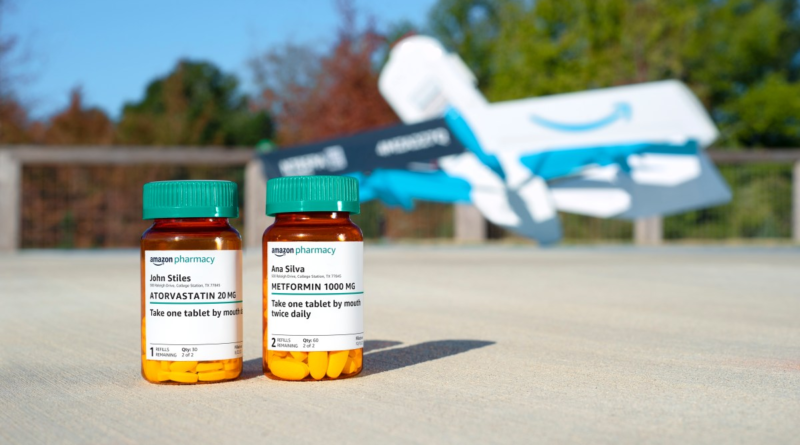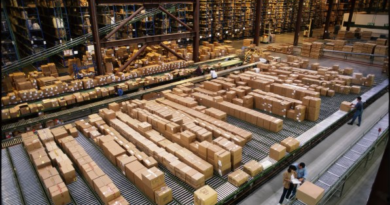Amazon Pharmacy launches its first drone deliveries
Amazon’s Prime Air drone service has been slow to take off for the company, with limited operations in just two locales a whole decade after Amazon first started development of the program. Now, Prime Air is getting a small injection of activity, quite literally: today, Amazon announced the launch of drone deliveries of medicines purchased through Amazon Pharmacy, its online prescription drug store.
Amazon said packages will be dropped by drone within 60 minutes of being ordered via Amazon Pharmacy. The first city for the service will be College Station, Texas.
Amazon Pharmacy currently covers around 500 medications, including those for flu, asthma, and pneumonia; and (for now) the drone service will be free to use, Amazon said. (And despite the name “Prime” in its branding, it’s open to all customers, not just those paying for the company’s Prime membership.)
Amazon had signalled its plans to offer Pharmacy deliveries in College Station previously, but the company has declined to say where else it might expand, or when. College Station, along with Lockeford, California, are the only two markets where Prime Air drones have been rolled out so far (deliveries up to now have covered a limited set of non-Pharmacy products including household products, office supplies and beauty items).
Markets where Amazon has launched same-day delivery for Pharmacy are Austin, Indianapolis, Miami, Phoenix, and Seattle — so those might be some of the next markets for drone deliveries, too (pending regulatory clearance).
Amazon has been slowly adding new services into Pharmacy to make it more market-competitive — for example RxPass, launched earlier this year, lets customers get access to certain medications they take regularly for a $5 flat fee). Prime Air, on the other hand, has been a slow burner for the company.
Amazon’s drone delivery program, in the works since 2013, made its first delivery in 2016, in England. In the U.S., Amazon scored a win in 2020, when it got approval from the Federal Aviation Authority to trial services.
But a series of regulatory and other technical issues have impeded the tech giant from making any significant roll out since then, with a mere 100 deliveries to its name as of May 2023. To that end, multiple observers have pointed out how it’s been surpassed by offerings from some of its biggest competitors. For instance, Walmart, which has worked with third-party drone providers rather than building a service in-house, has made tens of thousands of deliveries with partners Zipline (a specialist in drone-based medical deliveries) and soon Alphabet’s Wing.
There is an obvious logic to adding drone delivery to Amazon’s pharmacy service. If a person is unwell and unable to collect prescriptions in person, but is also needing them urgently and may not have someone else to help them out, drone becomes a quick and easy route for that customer.
Amazon’s focus on that at-home opportunity is not contained just to the delivery of meds. Amazon Clinic provides virtual evaluations and treatment recommendations covering some 35 conditions; and the company’s One Medical service (which it acquired for $3.9 billion in July 2022) provides virtual and in-person primary care services. Adding drones into that mix completes the virtual service loop.
“We’re taught from the first days of medical school that there is a golden window that matters in clinical medicine,” said Dr. Vin Gupta, chief medical officer of Amazon Pharmacy, in a statement. “That’s the time between when a patient feels unwell and when they’re able to get treatment. We’re working hard at Amazon to dramatically narrow the golden window from diagnosis to treatment, and drone delivery marks a significant step forward. Whether it’s an infectious disease or respiratory illness, early intervention can be critical to improving patient outcomes.”
There is a business logic too: delivery trucks have very high costs associated with them, from labor through to the operation (and insurance) of the vehicles themselves.
The company tells me that the operation in College Station is based around a pharmacy it opened in the town to lay the groundwork for the drone delivery service: the medications are overseen by a pharmacist onsite and then loaded on the drone located immediately outside the pharmacy. This also points to is an interesting opportunity down the line: Amazon working with other pharmacies, not owned by Amazon, offering similar drone delivery services to them.




